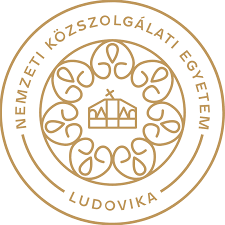While the majority of American society and policymakers strongly support political, financial and armed support for Ukraine, there is some division on the extent and terms of the latter, especially on the American right. The Republican Party has been on a foreign policy journey for two decades, which will be palpable in the 2024 presidential election.
Divided parties and different traditions
For a decade, US internal politics has been the scene of fierce political-ideological debates. The same can be said of foreign policy, which is supposed to be the watershed of partisanship. The general perception is that Democrats are more informed on foreign affairs, less inclined to take arms and therefore their foreign policy is sustainable, while Republicans tend to be more inward-looking, believe in military rather than diplomatic power and therefore have a more controversial foreign policy stance.
The reality is more complicated than that. The colourful coalition of both forces is organised into umbrella parties, so it is normal within a party not to agree on a foreign policy issue. The source of the problem is that while there are clear theoretical foreign policy directions (as in the case of international relations theories), these are not clearly visible in practice (nor is there foreign policy that is realist or liberal internationalist in all its elements).
The historian Walter Russell Mead attempted to redefine American foreign policy trends when, breaking with the isolationist-internationalist and then hawk-dove division that had prevailed for decades, he introduced archetypes of the historical foreign policy tradition: the images of the Wilsonian and Hamiltonian, and the Jeffersonian and Jacksonian traditions. While the former pair is closer to the internationalist line, the latter is closer to the isolationist line, within the pairs, based on idealist and realist logic. Although they do not exist purely in American public life, they can be associated with more realistic human portraits compared to abstract concepts, facilitating their understanding.
Ukraine as a litmus test
Mead’s re-categorisation was necessitated by the views of Democratic and Republican politicians on the South Slavic war, inconsistent compared to the Cold War years. Today, we witness a similar fracture: the picture of the “Democratic doves” and the “Republican hawks” is coloured by the question of support for Ukraine. The majority of US politicians are backing Kiev, but the form, scale and timing of the assistance is already being debated.
On the Democratic side, the progressive caucus signalled (and then withdrew) its concerns about US funding for Ukraine in October 2022, but on the Republican side there is a wider and more persistent divide. Donald Trump had already made controversial statements on Ukraine in 2016; Kevin McCarthy, (then potential) Speaker of the House emerged as a possible wheel-drag during the 2022 mid-term elections, and most recently Florida Governor Ron DeSantis criticised President Joe Biden’s policy on Ukraine.
The essence of all three complaints is that the United States faces more pressing challenges, that the Biden policy is drifting without concrete strategic objectives in Ukraine, and that it is increasing the likelihood of direct war between powers. Ukraine is a litmus test for the American right, because the dilemma of financial and arms support is really about a broader conceptual question: how one sees American interests and relations with the outside world?
Foreign policy lines of the Republican Party
The American right has been looking for its foreign policy for two decades. At the turn of the millennium, George W. Bush proclaimed a “distinctively American internationalism”, but this was overturned by the neoconservative foreign policy in response to the terrorist attacks of 11 September 2001: the 2003 Iraq war divided American public life for years. From a foreign policy perspective, Barack Obama’s election victory in 2008 was about the withdrawal from Iraq; his victory in 2012 was (in part) about an alternative to the Republicans’ ‘Reagan-type’ foreign policy. The popular belief is that Donald Trump cut the Gordian knot in 2016 and brought nothing but isolationism to the Republicans; however, he actually pursued a very active foreign policy -it is another matter that many did not like the content, means and style of it. The Republicans’ foreign policy reflection covers three main options:
- Rules-based internationalism: this movement includes followers of liberal internationalism, known from the theoretical schools of international relations, who wish an active US foreign policy on a global scale, alongside the principles of the liberal international order. Of the potential 2024 presidential candidates, this line includes former Vice President Mike Pence and former Arkansas Governor Asa Hutchinson. Their political support is mainly felt in the Senate, where the political position of the “mainstream” Republicans (including Mitch McConnell and Mitt Romney) may be considered solid. Their intellectual hinterland is the US foreign and security policy establishment, being the representatives of the Washington based think-tank world, especially the followers of the Wilsonian foreign policy tradition.
- Conservative internationalism: advocates of US hegemony behind a liberal international order, who advocate an active foreign policy only under certain conditions, which they believe can be helped by international institutions, although the latter serve their original purpose less and less and are therefore overall unreliable. Potential 2024 presidential candidates in this line include former UN Ambassador Nikki Haley and former Secretary of State Mike Pompeo. Their political support may come mainly from the Reagan or neo-conservative group of the Republican Party. Their intellectual backdrop is provided by conservative intellectuals, some of whom are to be found in the Washington based think-tank world, basically amongst the advocates of the Hamiltonian tradition and the offensive realist movement.
- Conservative nationalism: only those who stand for national interest in a narrow sense, who do not support the underpinning of the liberal international order by America, either on ideological or power grounds. Among the potential 2024 presidential candidates, Donald Trump is considered the main representative of this trend, and it is still questionable whether Florida Governor Ron DeSantis can be classified here. Their political support is rooted in the isolationist branch of the Republican Party, which has grown spectacularly stronger in recent years, although it is still a minority. Their intellectual base is much narrower than that of the former schools (the advocates of the Jacksonian tradition are less concerned with foreign affairs), while prominent representatives of the realist school of international relations also, whether deliberately or not, support the views of the conservative nationalist group.
As we approach the 2024 presidential elections, the above three options become increasingly obvious. The primaries are not decisive in this respect, but it is worth monitoring the direction that the Republican candidate, and in particular his or her foreign policy team, will opt for, depending on the outcome.






